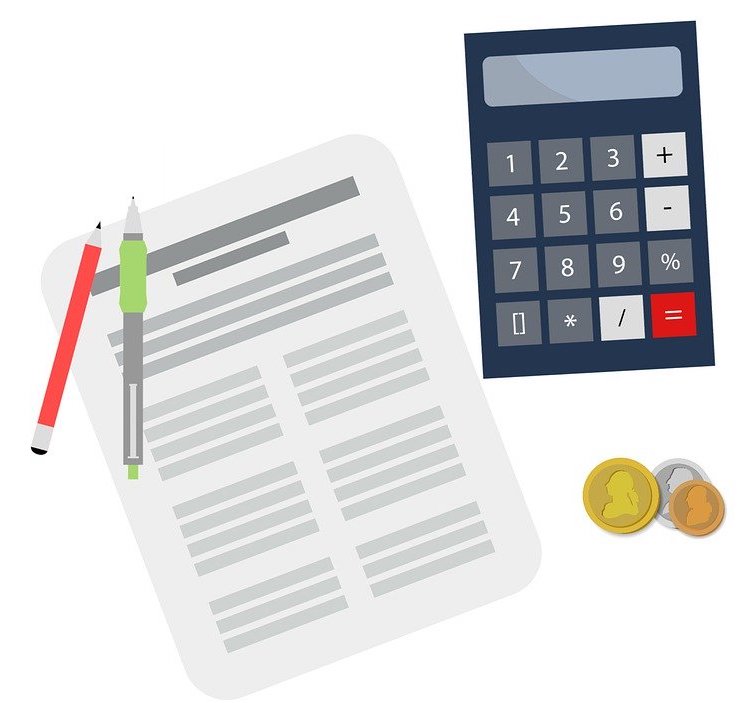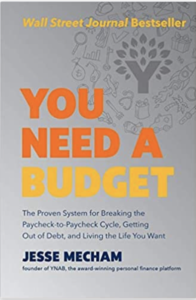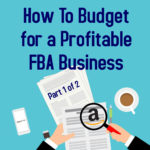“Where, oh where, does all the money go?” It’s the song so many people sing at the end of the month, when the paycheck is running out. Or sometimes in the middle of the month, if things are particularly tight.
But it doesn’t have to be that way. We don’t have to wonder where the money has gone, or question how we always seem to spend it faster than we earn it.
In fact, we can know the future.
Yep. It’s true. When it comes to our money, we can know ahead of time where it’s going to go and how it’s going to cover everything it needs to. There is a simple way to know our money’s future. It’s called budgeting.
 Basically, your budget is your plan for your money. It’s not any more complicated than that. I’m assuming that you’re reading this blog post because you enjoy your reselling business and you’re interested in learning how to improve it. Having a good budget is one of the best ways to improve your business. As the old saying goes: “You can’t improve what you can’t measure.” So once you understand your numbers, you can find the ways to make your profits larger.
Basically, your budget is your plan for your money. It’s not any more complicated than that. I’m assuming that you’re reading this blog post because you enjoy your reselling business and you’re interested in learning how to improve it. Having a good budget is one of the best ways to improve your business. As the old saying goes: “You can’t improve what you can’t measure.” So once you understand your numbers, you can find the ways to make your profits larger.
And I’m not just talking about a business budget here — I’m also talking about a family budget. Now, today’s blog post will cover why budgeting is so important for both your business and your family, and in my next blog post, I’ll move into how you can set up both your personal and business budgets to make sure you maximize profits.
Why Budget?
 Whether you’re reselling full-time or part-time, you need to have a plan for how you’ll spend your reselling income, as well as a plan for how you’ll spend any other regular paychecks or income you’re getting from other jobs or business ventures. If you don’t have a plan, the money tends to just dwindle away throughout the month, going out into the wild blue yonder, off to who knows where (I’m not making this up — you’ve experienced this, right?).
Whether you’re reselling full-time or part-time, you need to have a plan for how you’ll spend your reselling income, as well as a plan for how you’ll spend any other regular paychecks or income you’re getting from other jobs or business ventures. If you don’t have a plan, the money tends to just dwindle away throughout the month, going out into the wild blue yonder, off to who knows where (I’m not making this up — you’ve experienced this, right?).
In some cases, this leads to a shortage later in the month, to bills that can’t be paid with cash, and then to credit card debt, which basically means you end up paying more for your bills in the long run. In other cases, it means waste and inefficiency. You may think you’re not spending that much extra money throughout the month, and you may even be saving some here and there — but if you sat down and wrote it all out, you would find wasted cash that could otherwise go towards your next vacation, towards a savings goal, towards a charity you love…or towards sourcing. But you won’t know until you sit down and write up that budget to figure out where all your money goes.
Much of what we’ve come to love about budgeting can be found in the You Need a Budget (or YNAB) program. If you’re not familiar with this program, we recommend a couple of places to get you started:
• the You Need a Budget website for tons of free information
• the book You Need a Budget by Jesse Mecham for an excellent overview of the program
The methods taught in You Need a Budget work for couples, singles, and even teenagers. The concepts from this program are ideas we have lived by for years, and now we’re teaching these same ideas to our teenagers as they get ready to launch out on their own.
The principles of You Need a Budget aren’t revolutionary or groundbreakingly original. Instead, they are solid principles taught in an easy-to-understand and relatable format that addresses the stress in our lives when it comes to money. We’ve seen again and again how having a plan for our money removes a great deal of stress from our lives. It doesn’t eliminate stress — there are still situations that come up where we have disagreements or where we’re surprised by an expense we weren’t planning for. But at least we’re in agreement on some basic principles at the start of those discussions, and we know we ultimately have the same goals in mind — because we set those goals together.
Importance of Budgeting for the Reseller
 For those of you who are wondering if you could quit your day job and become a full-time reseller, perhaps the biggest hang-up keeping you from that transition is the thought of having irregular income. The absolute first step toward deciding if you can or should make that transition is to set a family budget. Part of setting a budget is knowing your regular expenses and getting a handle on your irregular (or seasonal) expenses. You have no way to know if your reselling income will be enough to cover those expenses if you don’t even know what those expenses are. Online banking makes keeping track of our expenses easier than ever, but you’d still be surprised how much money dwindles away in cash payments without our ever knowing where it went — doubly so, if you’re accustomed to swiping a credit card for most of your purchases.
For those of you who are wondering if you could quit your day job and become a full-time reseller, perhaps the biggest hang-up keeping you from that transition is the thought of having irregular income. The absolute first step toward deciding if you can or should make that transition is to set a family budget. Part of setting a budget is knowing your regular expenses and getting a handle on your irregular (or seasonal) expenses. You have no way to know if your reselling income will be enough to cover those expenses if you don’t even know what those expenses are. Online banking makes keeping track of our expenses easier than ever, but you’d still be surprised how much money dwindles away in cash payments without our ever knowing where it went — doubly so, if you’re accustomed to swiping a credit card for most of your purchases.
 Likewise, if you don’t set up a business budget, you have no way to know if your business is being successful in the long run. You must keep track of income and expenses, not just for IRS purposes, but because you need this information to plan for future expenses and strategize how best to invest your capital as you’re sourcing. Simply put, knowing your budget helps you make a good decision when you’re standing on Aisle 3 in a store wondering if an item would be a good product to resell.
Likewise, if you don’t set up a business budget, you have no way to know if your business is being successful in the long run. You must keep track of income and expenses, not just for IRS purposes, but because you need this information to plan for future expenses and strategize how best to invest your capital as you’re sourcing. Simply put, knowing your budget helps you make a good decision when you’re standing on Aisle 3 in a store wondering if an item would be a good product to resell.
Dave Ramsey says, “Winning at money is 80 percent behavior and 20 percent head knowledge. What to do isn’t the problem; doing it is. Most of us know what to do, but we just don’t do it.” Budgeting doesn’t have to involve difficult concepts. It’s mostly just common sense. The biggest part of it is to 1) sit down and make a plan and 2) stick with your plan, making changes as needed. Don’t get sidetracked, be patient, delay gratification, work hard, and see how smart choices can pay off in the long run.
If your reselling business is more of a get-rich-quick set-up, we don’t have a lot of advice for you. But if you’re wanting to see steady growth and a healthier business, we highly recommend that you take the time to budget.
So now you understand why a budget is important to maximizing profits — be on the lookout for our next blog post where I break down exactly how Rebecca and I budget both our personal and business numbers. To be sure you don’t miss the next blog post, scroll up and click on the subscribe button in the top right side of the screen.
Do you have any budgeting tips for other Full-Time FBA readers? I’d love to hear what tips work best for you and your business. Comment below!
*Post updated for 2020

We have used Dave Ramsey’s budgeting and concepts and even used to teach one of his classes since 2010. We are debt-free! Meeting once a month for our budget wasn’t enough, by the end of the month we still didn’t know where the money had gone. We would set a timer for half an hour and do our budget weekly and it made all the difference.
For our businesses, we have used Mike Malkovich’s profit first system and have had profitable businesses since 2015. We broke out our operating expenses to have inventory separate so we would always know how much money we had available to spend on inventory. We review our numbers daily, but profit first has given us an overview that traditional accounting hasn’t and has been worth the time and effort.
I loved the book Profit First and highly recommend it for someone to create a more detailed budget plan while running a business. It’s really good stuff.